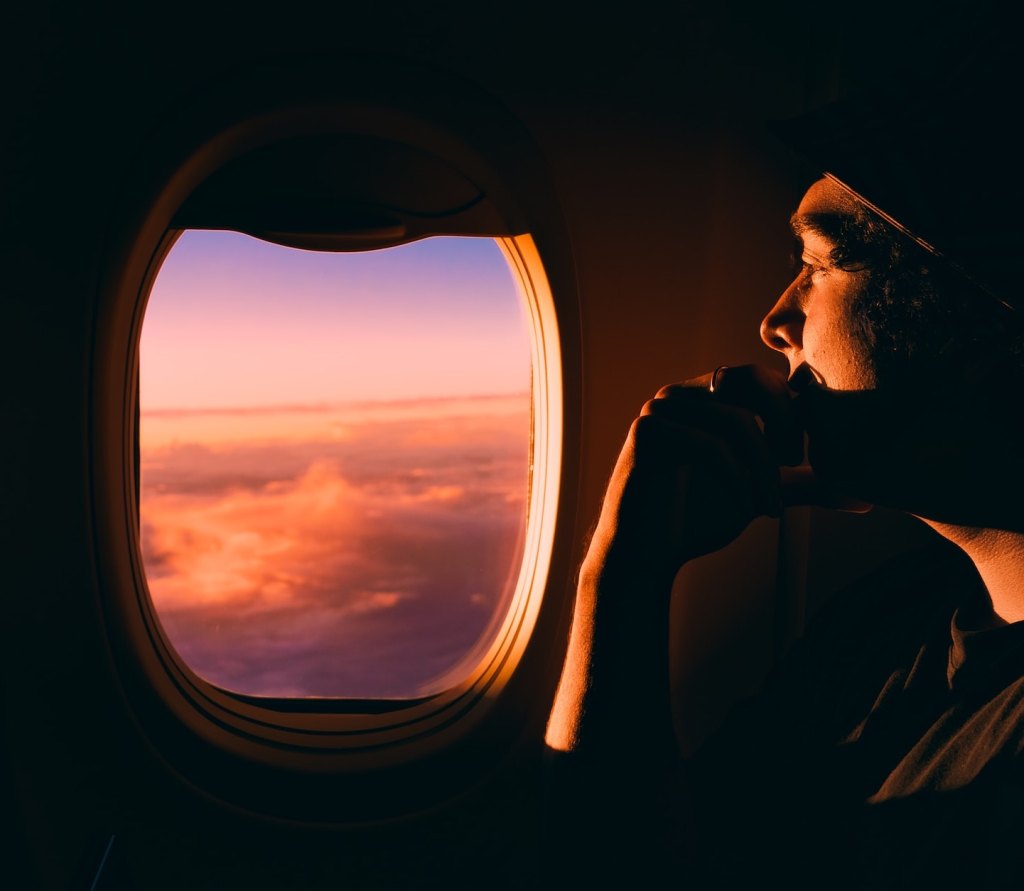Wondering Why
In this past year, I’ve had to do a lot of flying. Ministerial and personal obligations have seen me rack more than a few miles in an all-too-familiar economy-sized torture device they call a chair. I think we can all relate to the cramped leg room, the small package of crackers that passes for a meal, the child behind you kicking your chair in morse code. Despite the discomfort, I’ve generally always enjoyed flying. To me, there’s always a sense of wonder—to feel the nose of the plane lift gently, to see the ground slowly disappear beneath the wings, to rise up into the sky and climb above the clouds. My undergrad degree is in aeronautical engineering, and although I’ve had four years of understanding the mathematics and physics of flight, it still amazes me to consider that I am strapped to a chair in a 75-ton vehicle hurtling almost 600 miles per hour through the stratospheric ether.
One thing I’ve noticed though. On more and more flights, people are opting to close their window shades. Some play video games or surf the net on their devices, some sleep, and some just don’t want to be reminded that they’re flying. I’ve seen whole flights of people with the shades drawn. It’s disconcerting to me, to think that we are becoming a people so indifferent to the miracle of flight or to a bird’s eye view of God’s creation. For millennia, man looked up at the birds in the sky and wondered what it would be like to fly. And now, we’d rather sit in the dark and watch YouTube reaction videos and Tik Tok posts. Have we become so jaded, so un-enthralled by life, that we are incapable of feeling genuine wonder anymore?
The novel, The Color Purple, takes it’s name from an incidental episode in it’s narrative. The character Shug tells her friend Celie that it must irritate God that people walk past “the color purple in a field somewhere” and they don’t take a moment to acknowledge it’s beauty. Particularly purple flowers, which are uniquely beautiful and unusual. And I’m as guilty of this as the next person. We casually walk by profound expressions of God’s beauty and glory every single day—not just in an airplane.
During the season of Advent, we await the coming of the Christ child, the one for whom the prophet declared as “Wonderful Counselor” (Isaiah 9:6). Unfortunately the word, “wonderful,” has lost much of it’s gravitas in today’s language. The word is often used synonymously with “nice” or “pleasant.” But the Hebrew word pala upon which the word “wonderful” comes has much more weight. “Wonderful” really means extraordinary, unsurpassed, even supernatural. In other words, this Messiah will make us completely full of wonder. The word should require us to consider a Messiah that is beyond our preconceptions, beyond our natural world, beyond our understanding.
As artists of faith, as Christ followers, even just as human beings—we must be creatures of awe and wonder. We must train (or perhaps re-train) our souls to see and experience the wonder around us. We should never take for granted the beauty of a sunset, or the sound of a baby cooing, or the complexity and splendor of God’s creation. And especially, during this Christmas season, the birth of a God Child in a dusty manger.
[Banner photo by @felipepelaquim on Unsplash. Inset photo by Alonso Reyes on Unsplash.]







